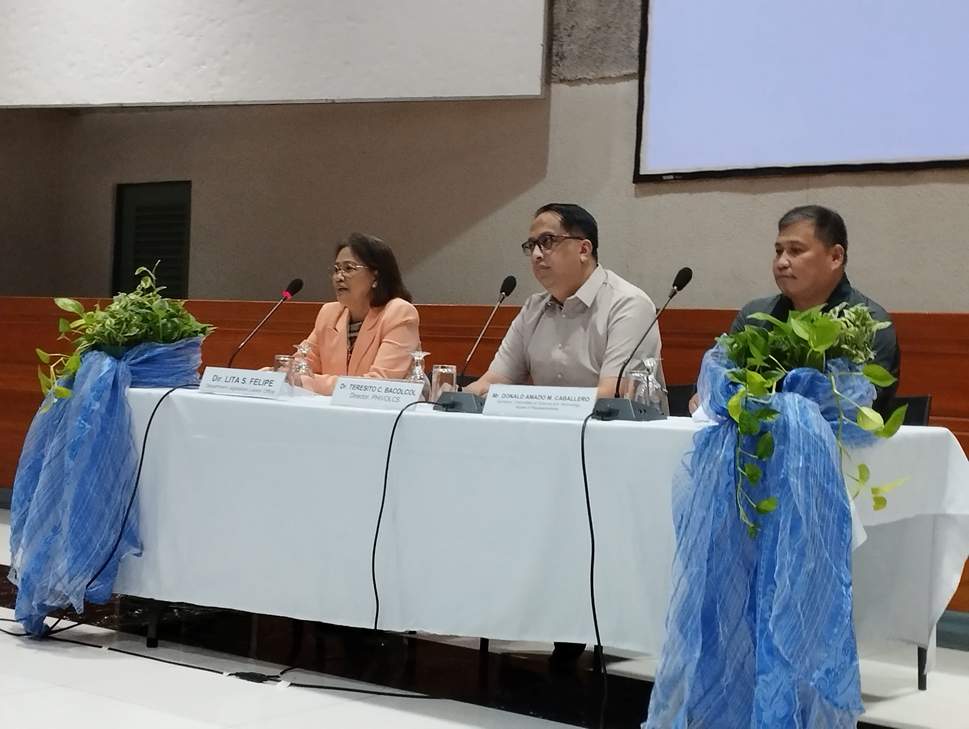by Allan Mauro V. Marfal
As we all know, the Philippines is in the Pacific Ring of Fire, where volcanic eruptions and earthquakes are common.
However, probably many of us do not know that the country has 24 active and 27 are potentially active volcanoes. And out of these 24 active volcanoes, only 10 are being monitored. Moreover, of the 10 monitored active volcanoes only two —Taal and Mayon—have complete monitoring systems.
The human and economic impacts of an insufficiently equipped active volcano is high. Cabalian Volcano, an active volcano located in Southern Leyte, does not have sufficient monitoring instruments. If its activity is not monitored, 240,000 individuals, and 30 airports could be affected by volcanic ash.
Meanwhile, the Philippines also lags in earthquake monitoring, with only 117 seismic stations, while Taiwan, which is one-tenth the size of the Philippines, has 194.
In a consultative meeting held on 18 April 2023, at the Philippine Institute of Volcanology and Seismology of the Department of Science and Technology (DOST-PHIVOLCS) headquarters in Quezon City, Director Teresito C. Bacolcol shared all the data and information that would further justify the urgency of the passage of the DOST-PHIVOLCS modernization bill.
The DOST-PHIVOLCS modernization bill aims to modernize the operations of the agency and enhance their ability to provide timely and accurate information, warnings, and recommendations to the public, government agencies, and other concerned stakeholders in the event of natural disasters.
The bill includes allocating funds, which will be around seven billion, for the acquisition and maintenance of state-of-the-art equipment, infrastructure improvement, research and development, and capacity building of DOST-PHIVOLCS personnel.
In his presentation, Dir. Bacolcol explained the need to strengthen the monitoring systems and capability of DOST-PHIVOLCS.
He said that the DOST-PHIVOLCS needs to add more seismic stations in the country to effectively increase the detectability and locate small earthquakes particularly for faults that exhibit low activity prior to large events. In addition, a denser network would help reveal active faults that have no clear surface expressions.
On the other hand, for tsunami monitoring, through this modernization bill, DOST-PHIVOLCS plans to establish at least 50 more stations for tsunami detection for coastal communities at risk to tsunamis, develop effective warning systems, and install sensors offshore close to tsunami sources.
Dir. Bacolcol also said that 21 out of 24 active volcanoes have incomplete hazard maps, putting at risk 28 provinces. Meanwhile, 27 potentially active volcanoes have incomplete hazard maps, putting 17 provinces at risk. He also emphasized that only 38 out of 82 provinces have complete earthquake hazard maps.
“Filipinos would greatly benefit from the passage of this modernization bill. Many of us are aware of the impacts of destructive earthquakes and volcanic eruptions. Casualties, property losses, all of these will be prevented or minimized if we have adequate monitoring equipment across the country. This will greatly help us formulate policy recommendations and guidance to our LGUs and communities,” said Dir. Bacolcol.
On the other hand, when it comes to the status of the bill, House of Representatives’ S&T Committee Secretary Donald Amado Montes Caballero shared that the DOST-PHIVOLCS Modernization Bill has already been approved at the committee level. A substitute bill is being consolidated from the 12 measures presented in the House of Representatives. He explained that after this, it will be referred to the Committee on Ways and Means and to the Committee on Appropriations, after which a committee report will be crafted. The bill will then be presented to the plenary deliberations for the approval of the House of Representatives.
The DOST-PHIVOLCS modernization bill is introduced in the Congress by representatives Joey Sarte Salceda, Ron P. Salo, Carlito S. Marquez, Ralph G. Recto, Anna York P. Bondoc, Michael L. Romero, Angelo Marcos Barba, Ferdinand Martin G. Romualdez, Yedda Marie K. Romualdez, Jude A. Acidre, Manuel Jose M. Dalipe, Ferdinand Alexander A. Marcos, Rufus B. Rodriguez, Jurdin Jesus M. Romualdo, Richard I. Gomez, Joseph Gilbert F. Violago, Jeyzel Victoria C. Yu and Dante S. Garcia.
This stakeholders’ consultative meeting was spearheaded by the DOST-Legislative Liaison Office, in partnership with the DOST-PHIVOLCS and the Committee on Science and Technology of the House of Representatives. The objective was to get inputs and insights from key stakeholders from the local government units, other national government agencies, academic institutions, and private sectors for the further improvement of the provisions indicated in the draft bill. (PR)

